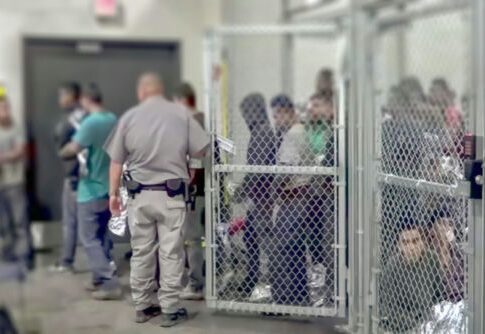Nebraska’s new “Cornhusker Clink” detention center marks a dramatic escalation in Trump’s promise to crack down on illegal immigration, igniting fierce debate over constitutional rights, state power, and the future of American communities.
Trump’s Immigration Crackdown Sweeps the Midwest
President Trump’s administration, in partnership with Nebraska Governor Jim Pillen, has unveiled the “Cornhusker Clink,” a migrant detention facility near McCook, Nebraska. Set to retrofit an existing state prison for up to 300 detainees, the center is part of a broader federal strategy targeting record surges in illegal border crossings and overcrowded detention centers. The Department of Homeland Security (DHS) and the Nebraska National Guard are coordinating operations, making this site a model for swift, decisive state-federal action after years of what many conservatives saw as federal inaction and unchecked immigration under previous administrations.
This expansion follows the July 2025 opening of Florida’s “Alligator Alcatraz” and the Indiana “Speedway Slammer,” part of Trump’s push to not only increase capacity but make a statement about local pride and resolve. Each facility is branded to its region, reinforcing a sense of state partnership and identity in the enforcement of federal immigration law. The Nebraska site’s rural location near a regional airport provides logistical advantages, while the use of existing prison infrastructure allows for rapid implementation. The administration’s urgency is fueled by more than 56,000 migrants currently in detention, with capacity strained to the breaking point.
Federal Law, State Partnership, and Constitutional Tensions
The legal foundation for these new facilities lies in the “One Big, Beautiful Bill Act” (OBBBA), which allocates $45 billion to expand immigration detention and enforcement. The law explicitly enables indefinite detention of families and children, a provision that has triggered concern among legal and human rights advocates about constitutional protections and due process limits. DHS Secretary Kristi Noem has framed the expansion as essential for public safety, warning would-be migrants to “avoid arrest and self deport now” via the CBP Home App. Governor Pillen emphasized the state’s role in “keeping Nebraskans—and Americans across our country—safe,” reflecting a new era of aggressive state-federal collaboration that many conservatives view as long overdue after years of what they saw as federal neglect and leftist obstruction.
Yet the expansion’s aggressive approach has not gone unchallenged. Federal judges imposed a temporary restraining order on further construction at the Florida site due to environmental concerns, and advocacy groups have filed lawsuits alleging violations of due process, humanitarian standards, and the Flores Settlement Agreement, which limits the detention of migrant children. Democratic lawmakers demand greater transparency, warning of risks to constitutional rights and local communities. These legal battles highlight a central tension: supporters see strong enforcement as a constitutional duty and a restoration of order, while critics argue that rapid expansion risks trampling on the very freedoms and values the Constitution is meant to protect.
National Implications: Security, Sovereignty, and the Future
For conservative Americans frustrated by years of open-border policies and government overreach, the “Cornhusker Clink” symbolizes a turning point—one where federal and state leaders act decisively in the national interest, using every constitutional tool available to restore law and order. The new detention infrastructure promises not only to accelerate deportations and reduce the strain on existing facilities but to send a clear message that the era of catch-and-release and sanctuary loopholes is over. However, the controversy over family detention, indefinite holding, and community impact cannot be ignored. Legal and humanitarian challenges remain in the courts, and the ultimate fate of the detention network may hinge on future rulings and public debate. This moment exemplifies the ongoing battle over who controls America’s borders and whose vision of the Constitution will shape the nation’s future.
From swamps to fields: Trump's new Alligator Alcatraz is a Cornhusker Clink to detail migrants https://t.co/hj6ktoKRkU
— Daily Mail US (@Daily_MailUS) August 20, 2025
The Trump administration’s policies have sharply reduced illegal border crossings in early 2025, but at the cost of rising legal and political scrutiny. As new facilities open across the heartland, the debate over security, liberty, and American identity is far from settled. Patriots looking for action after years of gridlock and leniency now see their priorities reflected in policy—yet the price and precedent of this new infrastructure will be judged for years to come.
Sources:
ABC News: Democratic lawmakers demand information about ‘Alligator Alcatraz’
TurnTo10: ‘Cornhusker Clink,’ Trump admin to open new migrant detention center


